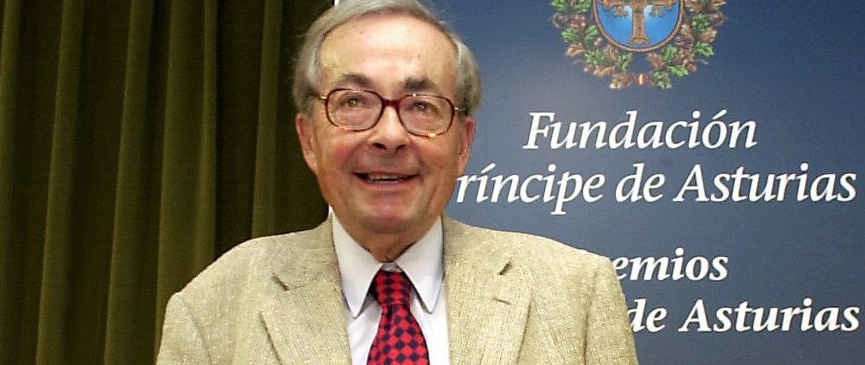Main content
George Steiner Prince of Asturias Award for Communication and Humanities 2001

George Steiner (Paris, France, 1929 - Cambridge, UK, 2020) was born to a Jewish Viennese family, he lives between the United States, where he went into exile in 1940, and the UK. He studied Literature as well as Mathematics and Physics at Chicago and Harvard, and earned his doctorate in Literature and Philosophy at Oxford. He is one of the world's foremost scholars of European culture, and has lectured at the universities of Stanford, New York and Princeton (where he was professor of Comparative Literature) although he has also pursued his academic career to a great extent in Geneva (Switzerland) and Cambridge (UK).
He was a literary critic for 25 years at The New Yorker, and then at The New York Times, and worked for The Economist between 1952 and 1956. Beyond his concerns (translation as a capital problem of culture, silence as a response to horror, etc.), his work also poses questions about the responsibility of the literary critic (he prefers to define himself as a “master reader”). He made his debut as a storyteller in 1964 with the book Anno Domini, although he is best known as one of the leading contemporary essayists, thanks to works such as Antigones, The Death of Tragedy, After Babel and Martin Heidegger, among others. He has also written No Passion Spent, his autobiography entitled Errata, Nostalgia for the Absolute, Grammars of Creation, Lessons of the Masters, Preface to the Hebrew Bible, The Idea of Europe and My Unwritten Books.
Foreign Honorary Member of the American Academy of Arts and Sciences and Fellow of the British Academy, he holds honorary degrees from the Universities of East Anglia and Leuven, Bristol, Glasgow, Liège, Ulster and Durham, and Mount Holyoke College (USA). He holds the distinctions of Chevalier of the French Legion of Honour, the Truman Capote Award and the Alfonso Reyes International Award.
End of main content
